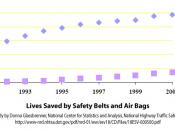The debate over state interference in personal liberties has been a reoccurring concern since the beginning of the first types of democracies. In John Stuart Mill's, On Liberty, Mill addresses the need for little state intervention in order to respect personal liberty and autonomy. In his essay, Mill stresses the importance of the individual and the need for government not to restrain these liberties through paternalistic means. With his firm stance of his Harm Principle, devotion to utilitarianism, and analysis of liberties of thought and action, Mill confidently stresses that state paternalism is never justified. In this paper, I will argue, through Mill's Harm Principle that "the only purpose for which power can be rightfully exercised over any member of a civilized community, against his will, is to prevent harm to others." I will emphasize the idea that one is sovereign and the government need not interfere for "liberty consists in doing what one desires," so long as it does not infringe on the liberties of others.
"Over himself, over his own body and mind, the individual is sovereign." Mill's defense against paternalism lies primarily on the concept that individuals have a better idea of what is good for them than the government or any one else for that matter. While arguing his case, he ensures that these individuals involved are coherent, educated, and well-informed adults. Before further indulging into Mill's argument against paternalism, one may wonder what exactly paternalism is. Webster's Dictionary describes paternalism as "a policy or practice of treating or governing people in a fatherly manner, especially by providing for their needs without giving them rights or responsibilities." To continue further, paternalism is the interference of a state or an individual against the will of another. This interference is justified by claiming what they did is...


